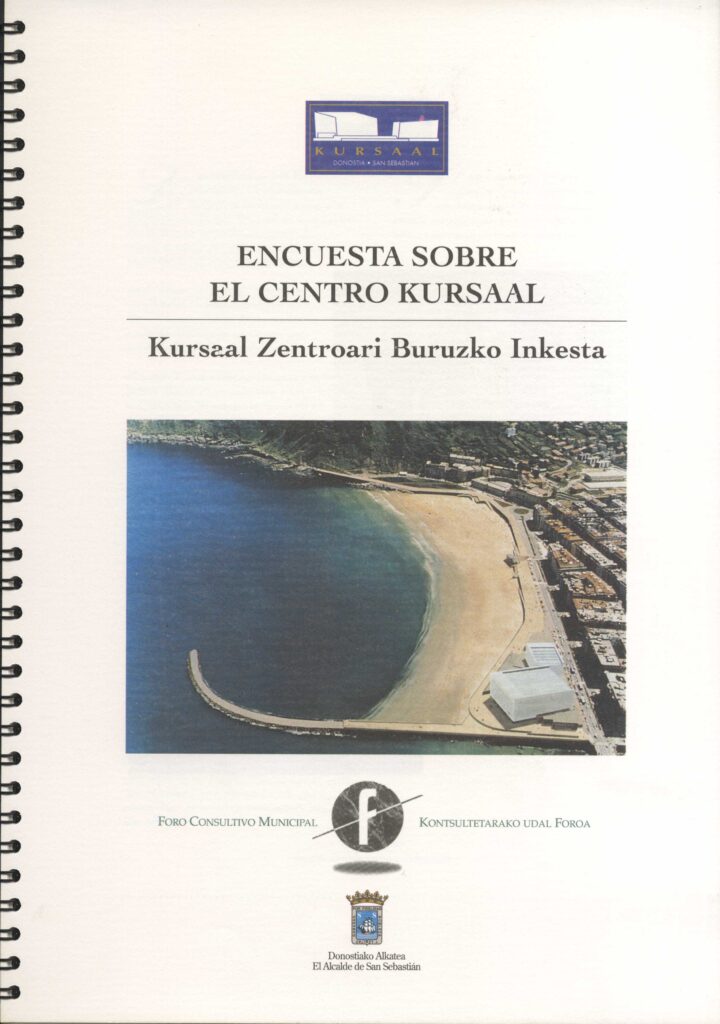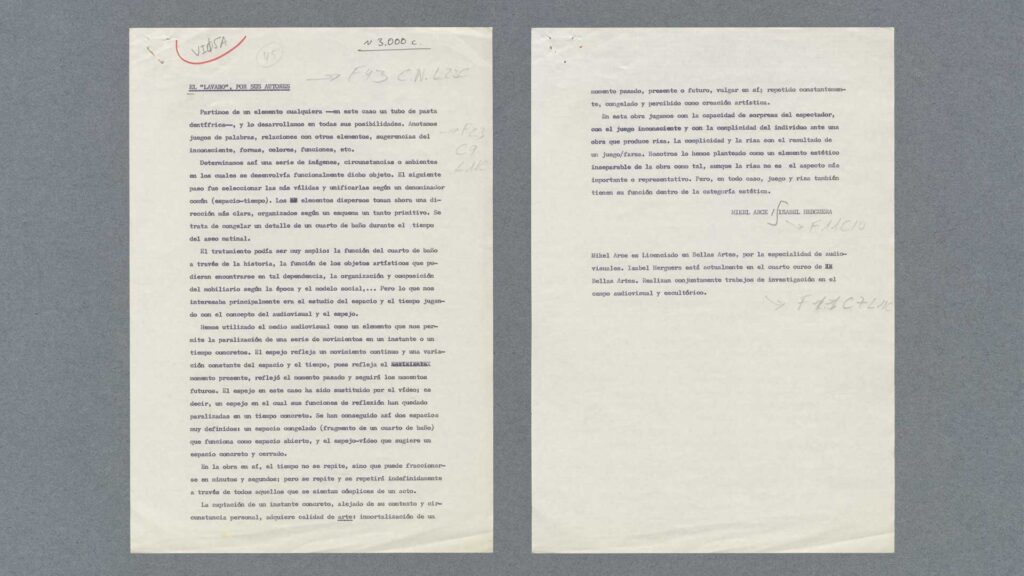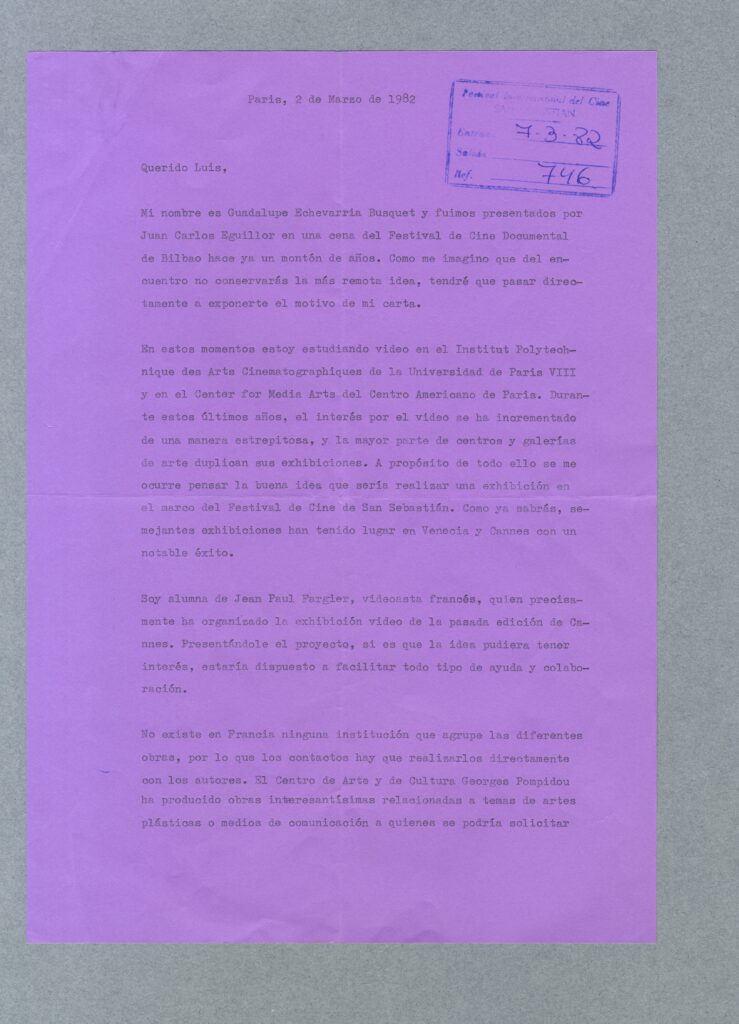May 2023
In 1959, the San Sebastian Festival brought out two special issues of its official daily at the Cannes and Venice fests. The aim was clear: to tell the world that, having obtained the coveted “competitive non-specialised festival” category from the FIAPF in 1957, San Sebastian now rubbed shoulders with the international festival elite. The issue published in French and distributed at Cannes in May 1959 leaves no doubts as to the cultural diplomacy of the operation: the Festival’s prestige was also a way of breaking the isolation of a Franco-bound Spain that was endeavouring to shed its skin. The texts on the front page by Antonio de Zulueta y Besson (Festival director from 1957 to 1960) and Carlos Fernández Cuenca (head of the Filmoteca Nacional de España and future director of the event from 1963 to 1966) are illustrative: while the former celebrates San Sebastian’s incorporation to the “cultural force of our old Western Europe”, the latter praises the crossborder nature of “one of the cities in my country most open to the contacts of the world”. Moreover, the issue announces the more cosmopolitan and liberalizing aspects of the edition to run in July of that same year: the homage to René Clair (organised with a group of young enthusiasts, members of San Sebastian’s Cineclub, among whom were Javier Aguirre, Elías Querejeta and Antxon Eceiza), a course and retrospective dedicated to the “Brussels twelve” (a list of the best films in the history of cinema selected by 117 experts for the World Fair in 1958) and the list of countries that had already submitted their movies to the competition (including socialist countries such as Czechoslovakia and Poland, which were later joined by Bulgaria, Hungary and Yugoslavia, a factor that unleashed bitter controversy among the more reactionary sectors of Franco supporters). However, some of these intentions clashed with the paradoxes inevitably faced by an international festival held in the absence of political freedoms. Four of the titles programmed in the Brussels season were censured: none of the three Soviet films selected (Dovzhenko, Eisenstein, Pudovkin), nor Citizen Kane, would eventually reach the Festival screens. For its part, Zulueta’s mandate would end only a year later when, following criticism against censorship under Franco voiced by young students attending the first International Meeting of Film Schools, he was obliged to hand in his resignation.
Festival magazine’s special issue (1959) San Sebastian Festival Archive [+]
Other documents of the month
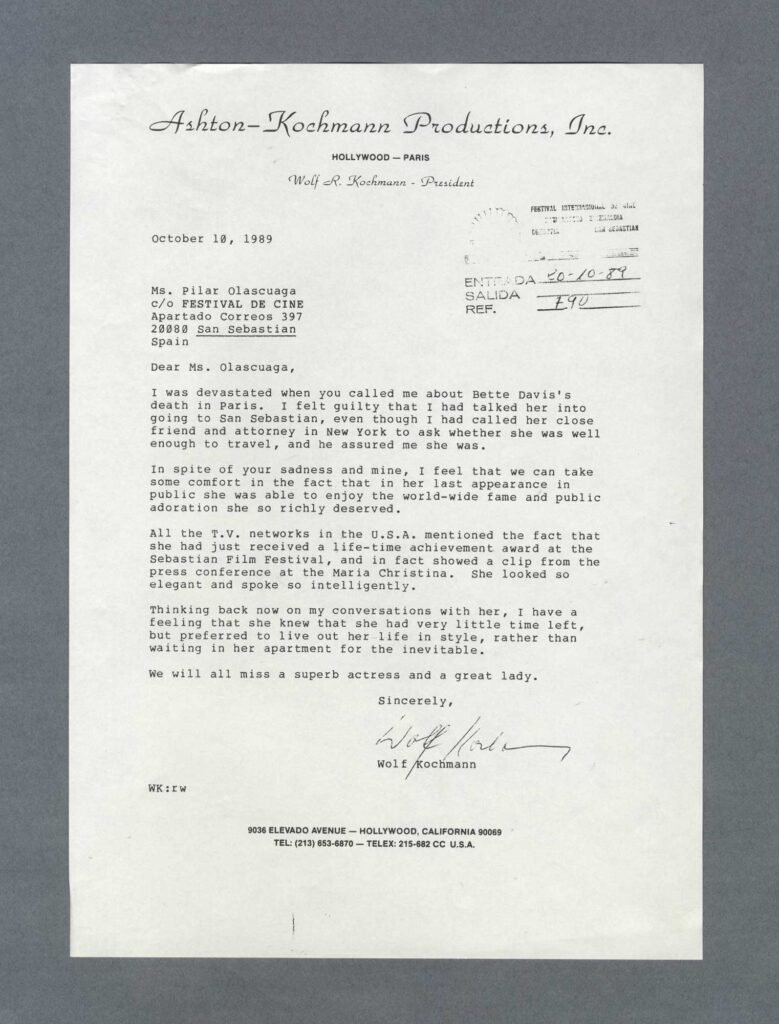
[+]
Letter from Wolf Kochmann to Pilar Olascoaga on the death of Bette Davis (1989) San Sebastian Festival Archive. [+]
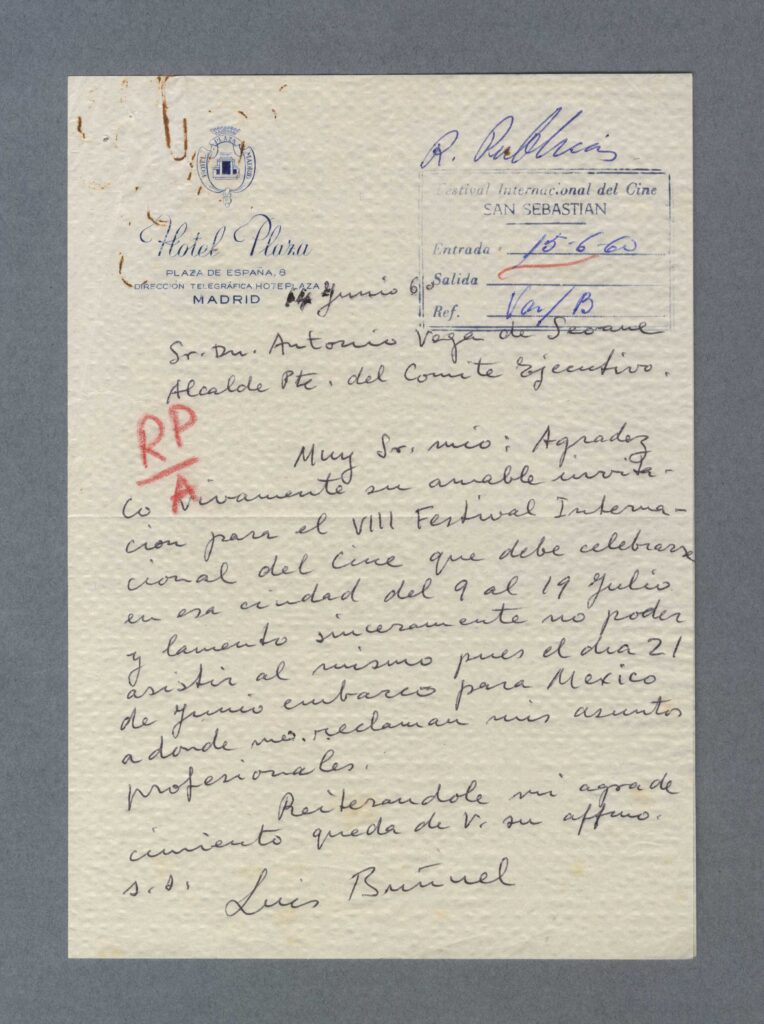
[+]
Letter from Luis Buñuel to the Mayor of San Sebastián Antonio Vega de Seoane (1960) San Sebastian Festival Archive. [+]
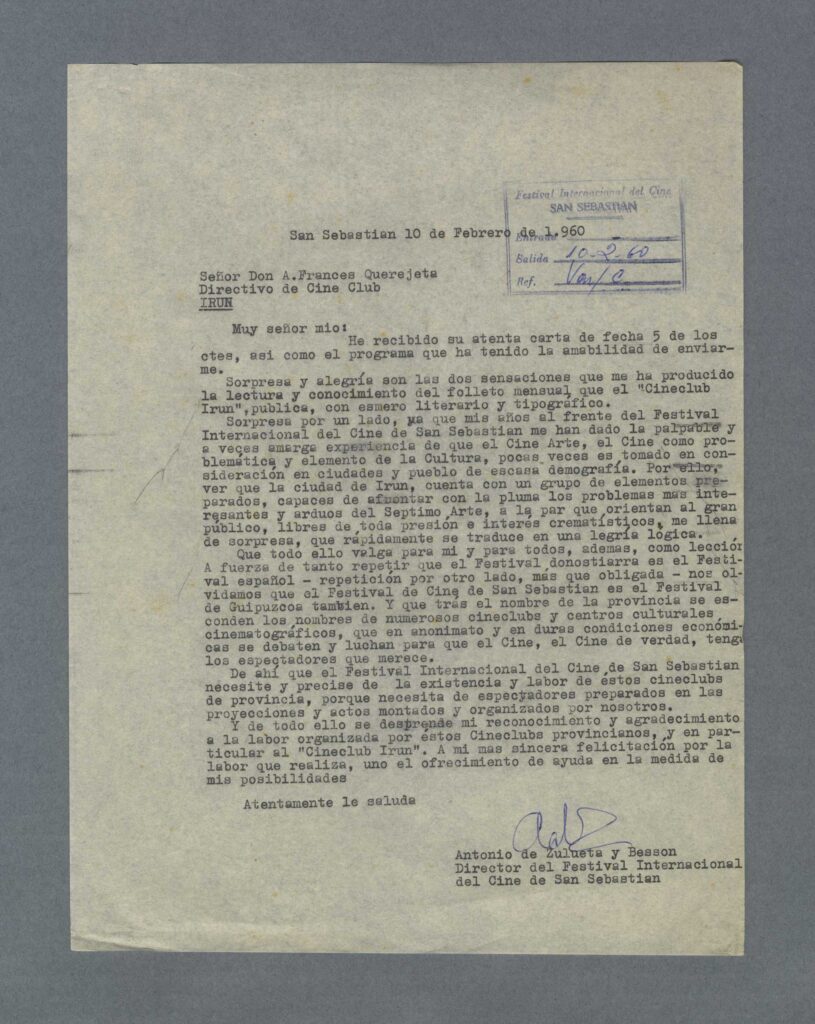
[+]
Letter sent by Antonio de Zulueta y Besson to the Cineclub Irún accepting to collaborate with them (1960) San Sebastian Festival Archive. [+]
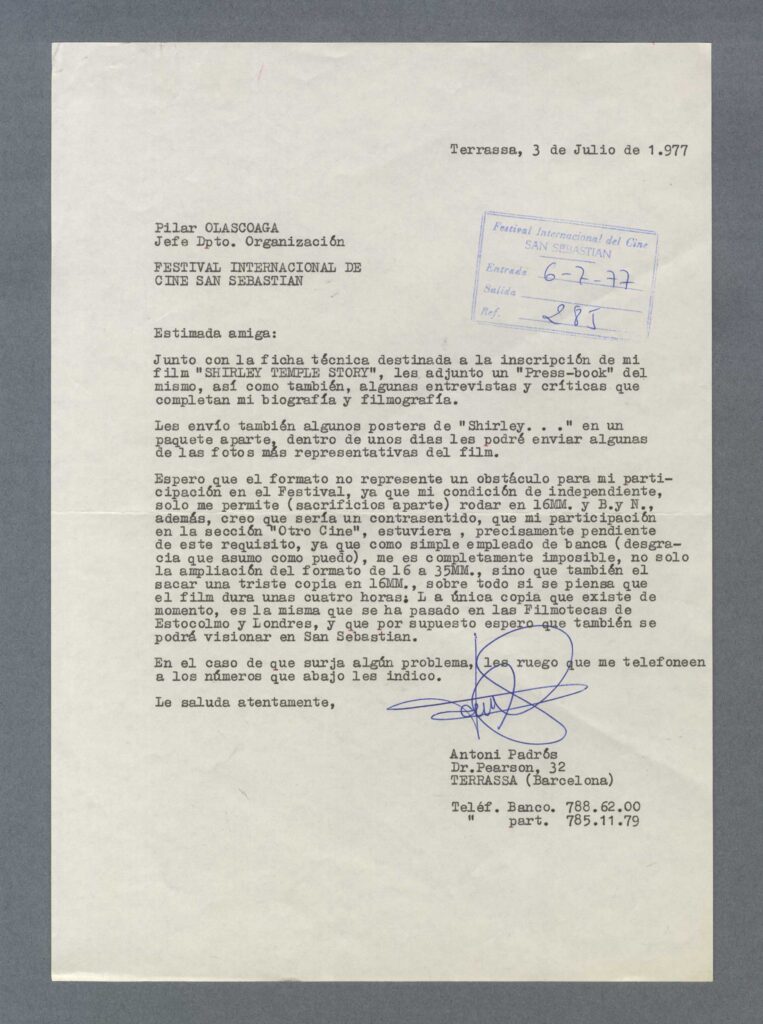
[+]
Letter from underground filmmaker Antoni Padrós to Pilar Olascoaga (1977) San Sebastian Festival Archive. [+]
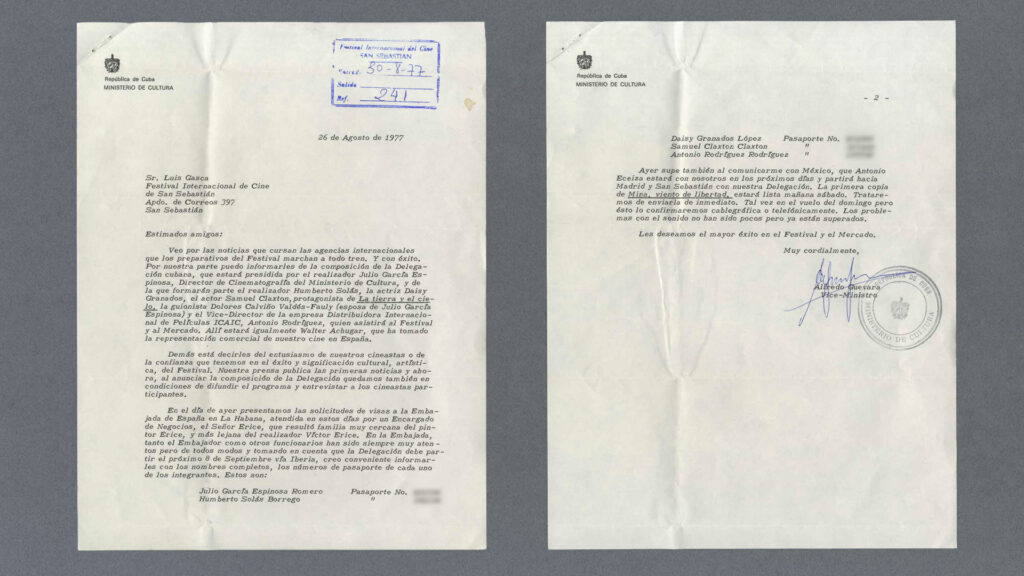
[+]
Letter from Alfredo Guevara, Vice Minister of the Ministry of Culture of Cuba and founder of ICAIC, to Luis Gasca, Secretary General of the Festival (1977) San Sebastian Festival Archive [+]
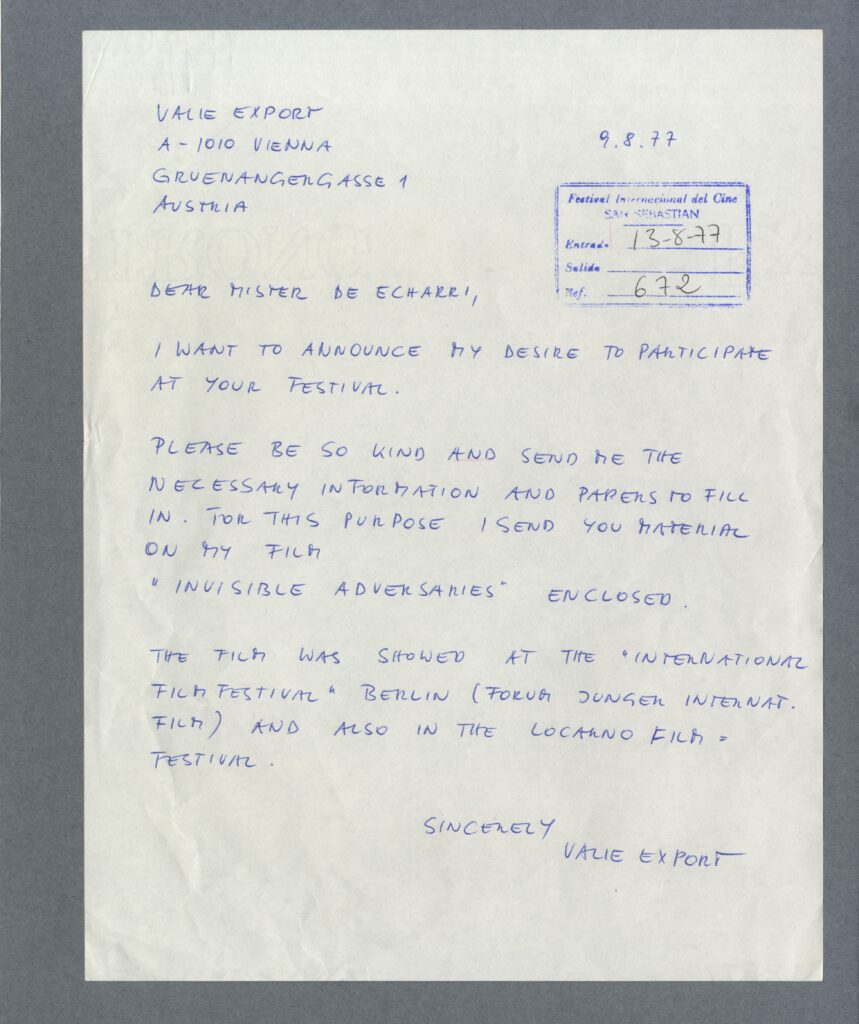
[+]
HLetter sent by VALIE EXPORT to Festival Director Miguel de Echarri (1977) San Sebastian Festival Archive [+]
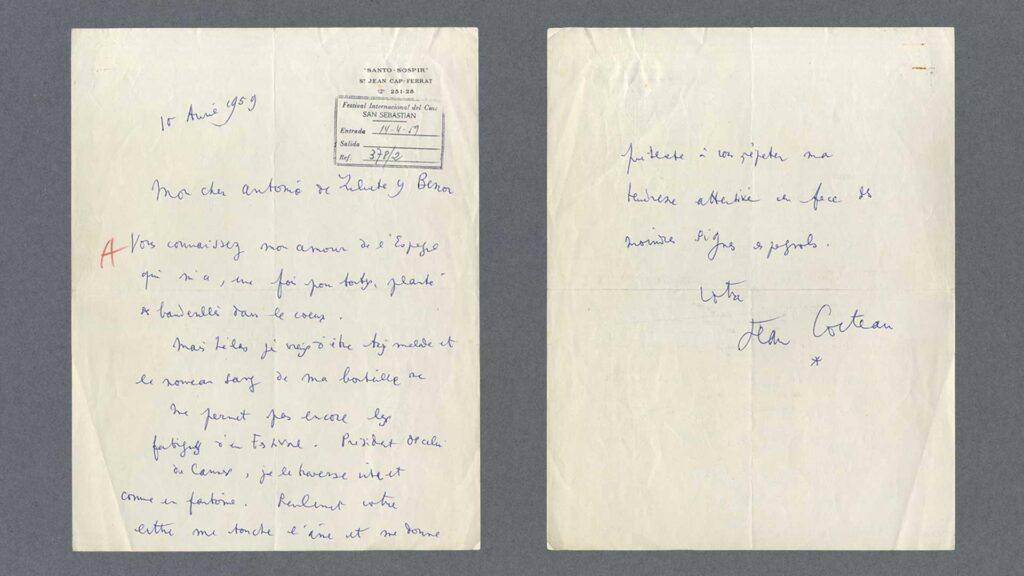
[+]
Handwritten letter from Jean Cocteau to Antonio de Zulueta y Besson (1959) San Sebastian Festival Archive [+]
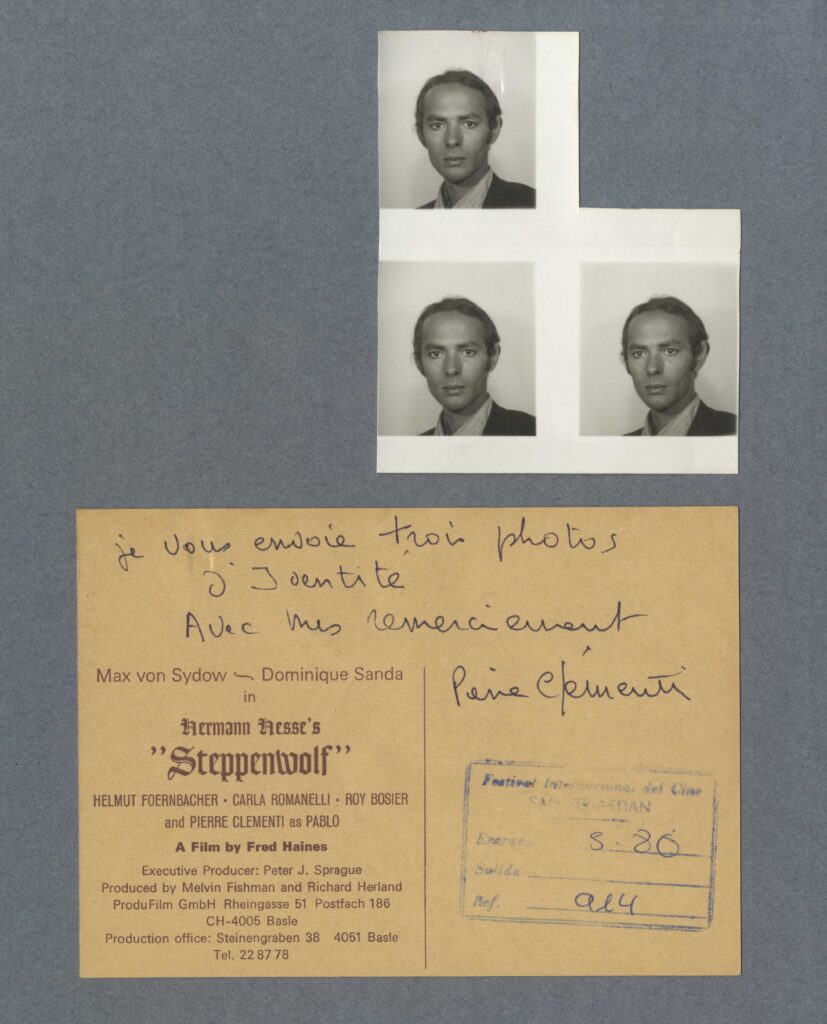
[+]
ACommunication with the director Pierre Clémenti (1979-1980) San Sebastian Festival Archive. [+]
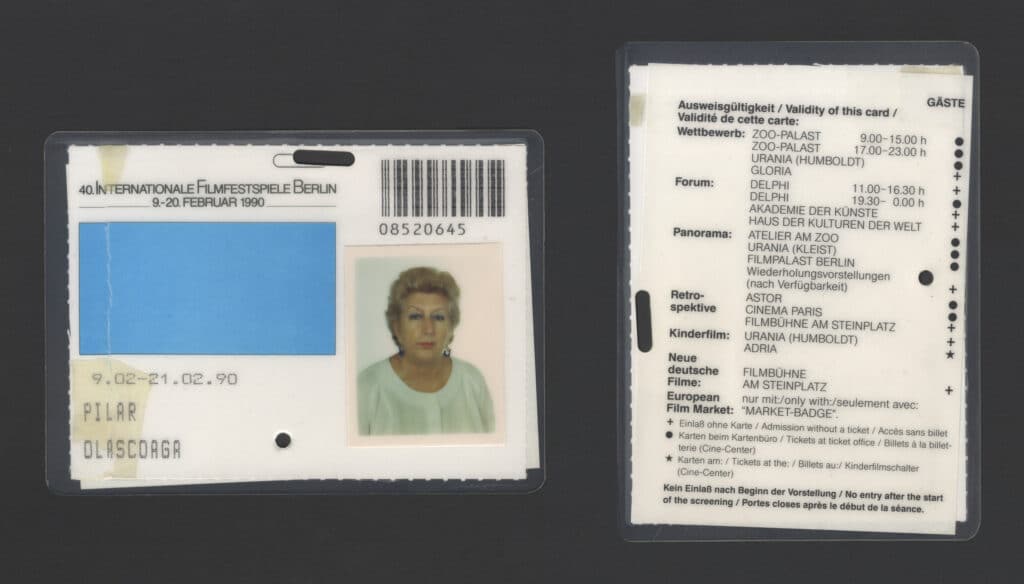
[+]
Accreditation of Pilar Olascoaga to attend the 40th edition of the Berlinale (1990) San Sebastian Festival Archive. [+]
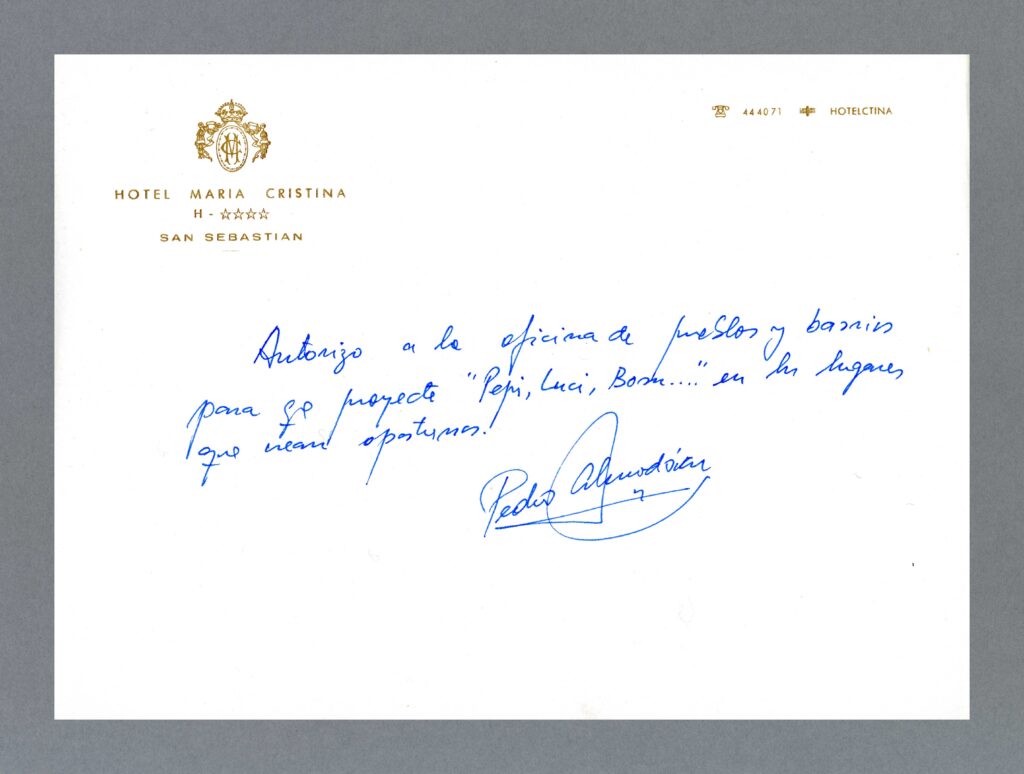
[+]
Handwritten note by Pedro Almodóvar (1980) San Sebastian International Film Festival Archive [+]
